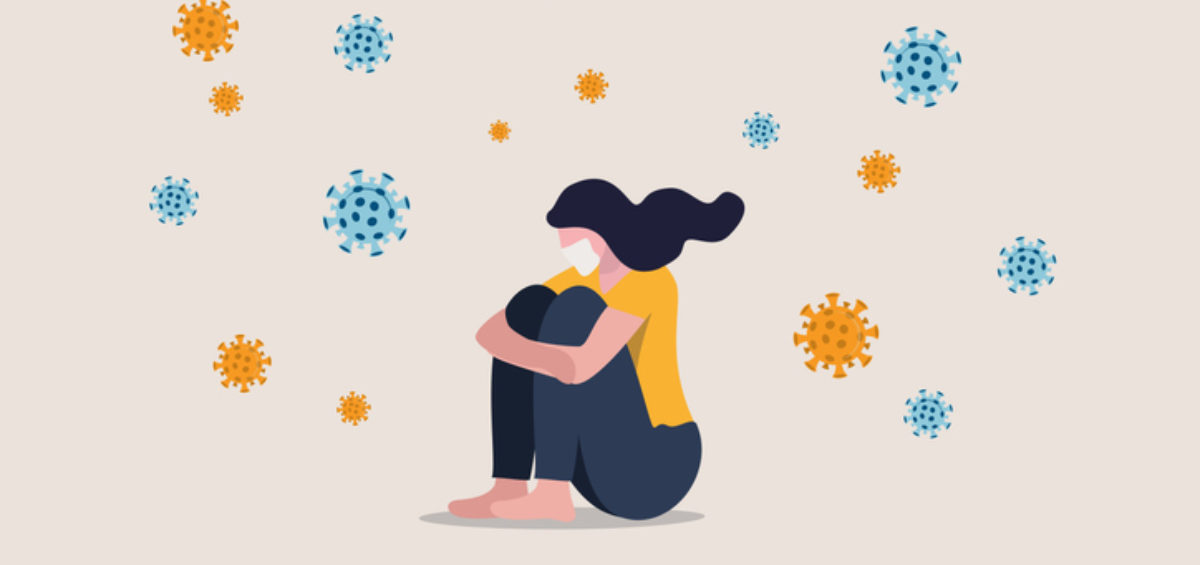
For Australians, large-scale bushfires, followed by floods were a tragic start to the year. Soon after, news of COVID-19 swept the world, quickly escalating into a global pandemic. Entering unprecedented times, Australia and New Zealand enforced strict lockdown measures that changed life as we knew it. Whilst economies, events and travels plans are still experiencing the after effects, individually, the mental and emotional toll this year has taken also continues to be felt by many.
In the final months of 2020, let’s stop and reflect – how have you felt throughout this year? Understand, that whatever degree to which you felt you were affected by the events of this year, you’ve lived through times of crisis and trauma. Because of this, it’s important to understand what trauma is, and how you can support your body and mind to process and rebuild resilience in response to it.
Defining Trauma
An event becomes traumatic when it overwhelms a person’s nervous system, stress resilience and coping mechanisms, becoming too much for the mind and emotions to process.
For this reason, living through the enormous uncertainty that COVID-19 created is a collective trauma experienced by most across the planet this year. Here, our nervous systems were left reeling as they tried to make sense of something they’d likely never encountered before.
An event becomes traumatic when it overwhelms a person’s nervous system, stress resilience and coping mechanisms, becoming too much for the mind and emotions to process.
How Have You Felt this Year?
From a biochemical perspective, when the brain encounters trauma, it will activate the ‘fight or flight’ response (the sympathetic nervous system) as a way to try and process the event. This response is totally focused on resourcing the body to fight or flee from the threat, shuttling blood and energy to the heart, limbs and lungs, and taking it away from the brain, digestive and reproductive organs. Therefore, our capacity in fight or flight mode to interpret complex emotions, language, thoughts and concepts is actually diminished.
So if you’ve had any moments this year of feeling stressed, anxious, unmotivated, overwhelmed, confused, scattered or forgetful, know this has all been perfectly normal and expected under the circumstances.
Beyond this, our nervous system may enter another stage, called the ‘freeze’ response, where it stops trying to fight or flee and instead tries to trick or confuse a threat by freezing in place. Emotionally, this can present as feeling detached, numb, exhausted and/or disassociated. So if you have felt any of these, this is also normal, and is the result of your brain looking for a coping mechanism.
If you’ve had any moments this year of feeling stressed, anxious, unmotivated, overwhelmed, confused, scattered or forgetful, know this has all been perfectly normal
Returning to Baseline
Once we perceive that a threat or trauma has passed, the nervous system works to cycle back through these stress responses and return to what’s called our ‘rest and digest’ mode (the parasympathetic nervous system). This is where the brain is alert but relaxed, and is allowing all normal and health-promoting functions within the body to occur.
It’s our aim therefore to help the body return to this baseline, where it can begin to process the trauma effectively, build resilience and better cope moving forward.
Releasing Trauma’s Hold
To start you off on this process, here are five recommendations to consider:
- Solidify the basics. Foundational wellness principles are of enormous benefit during these times, as they help keep the body energised and balanced. Focus on eating plenty of protein and good fats to stabilise your blood sugar, ensure you’re getting at least seven hours of rejuvenating sleep per night, move your body daily (in nature if possible) and avoid excessive consumption of nutrient-depleting sugar, caffeine or alcohol.
- Utilise resilience-building supplements. Ongoing stress and/or trauma can start to cause negative changes to the structure and function of parts of the brain, resulting in reduced resilience over time. Natural medicines such as magnesium, turmeric and saffron have been shown to combat these changes, helping to protect and repair brain tissue and build resilience.
- Create a mental health plan. Work with a counsellor, psychologist or psychiatrist who can facilitate you safely processing trauma you have experienced, and provide you with tools to manage and heal from it.
- Feel your emotions. Allocate yourself time to be purely present with whatever emotions you’re feeling, which can help enormously to process and let them go. Simply describe the feeling, texture or sensation of the emotion, without the mind having to interpret it.
- Create stillness. Quieting your mind and taking deep breathes during meditation calms an overwhelmed nervous system, helping you return to baseline. Completing this outside in nature can also offer additional stress-reducing benefits.

Your Rebuilding Resilience Team
When processing trauma, it is recommended you seek the support of a Natural Healthcare Practitioner, who can assess your experiences within the context of your entire life’s story and health picture. Playing a supportive role within your wider healthcare team, they can create a prescription using supplement, diet and lifestyle interventions that will assist your nervous system to rebuild resilience. To find your closest Practitioner, click here.
Looking Back to Look Forward
2020 certainly presented us with enormous unseen challenges. To some degree, we all experienced trauma in response to this, and your nervous system would have worked to process and understand this trauma in its own way. Drawing on the supportive tools and Practitioners you require, you can begin to meet and process this trauma, helping your nervous system return to baseline, and head into 2021 feeling empowered and resilient.
 Research reported on September 25, 2020 in PLoS One uncovered a lower risk of adverse clinical outcomes among hospitalized COVID-19 patients whose vitamin D levels were sufficient.
Research reported on September 25, 2020 in PLoS One uncovered a lower risk of adverse clinical outcomes among hospitalized COVID-19 patients whose vitamin D levels were sufficient.

